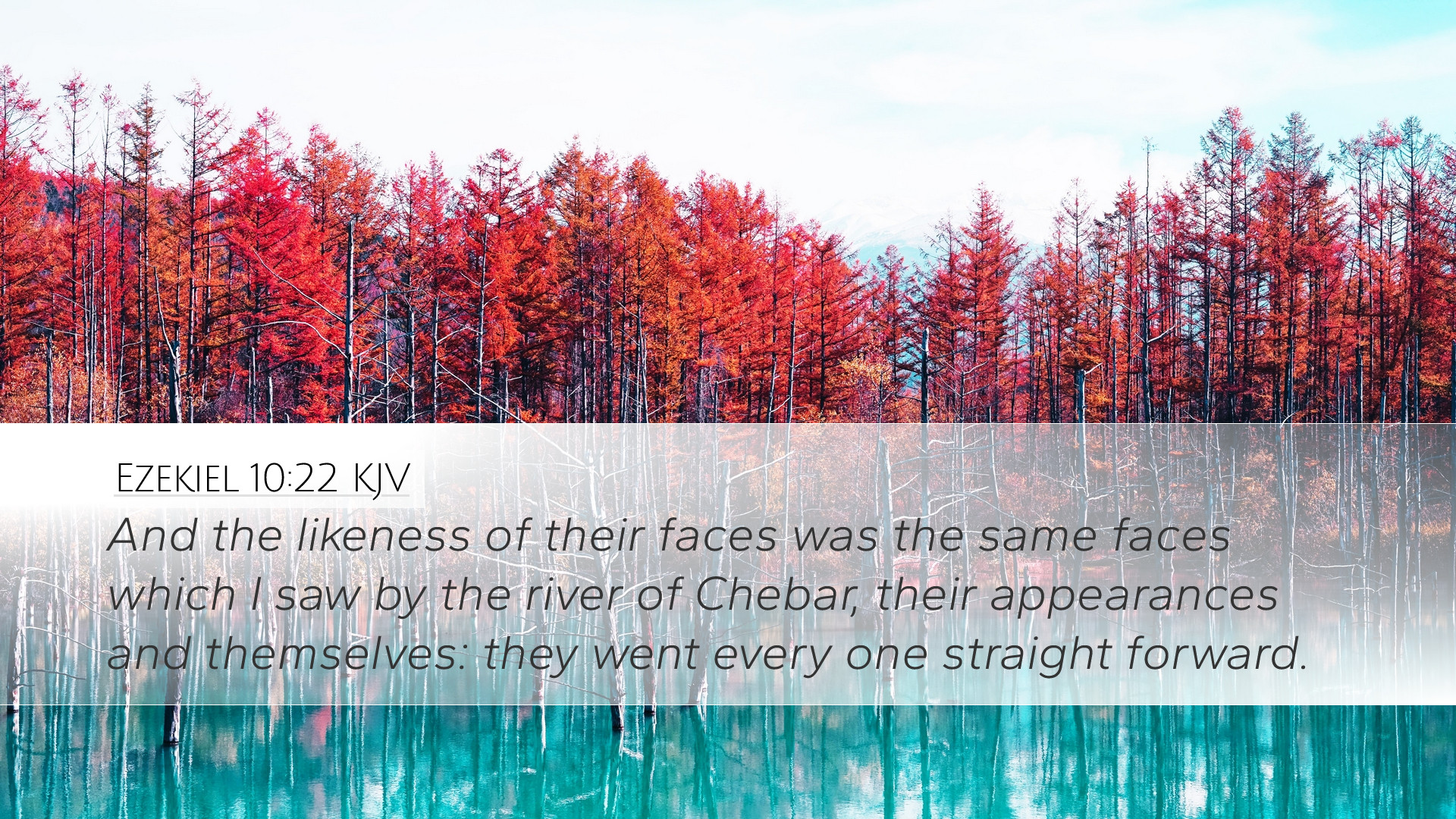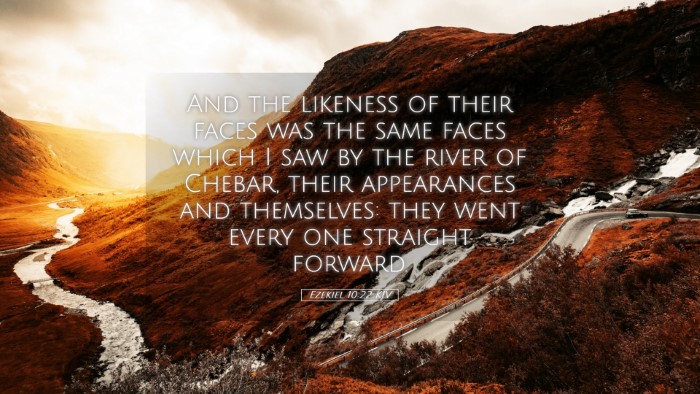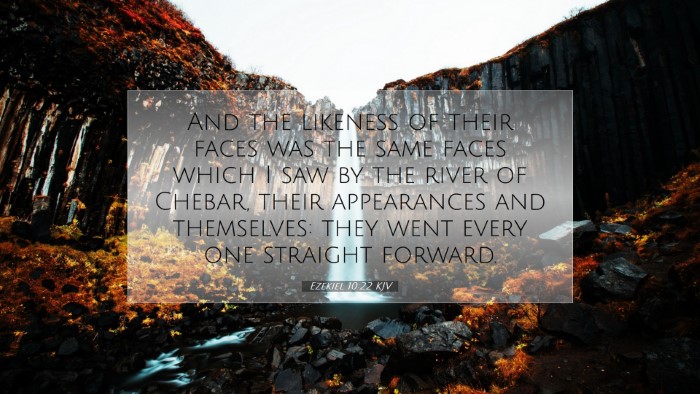Bible Commentary on Ezekiel 10:22
Ezekiel 10:22 (KJV): "And the likeness of their faces was the same faces which I saw by the river of Chebar, their appearances and themselves: they went every one straight forward."
Introduction
The vision of Ezekiel is profound, encompassing themes of divine judgment, the glory of God, and the movements of the Spirit. In this particular verse, we see a continuation of Ezekiel's earlier visions, where the imagery relates to God's heavenly beings—the cherubim—who execute His will. This commentary synthesizes insights from public domain commentaries to illuminate the deeper meanings and theological implications present in this passage.
The Cherubic Vision
Face of the Cherubim: The text emphasizes that the likeness of their faces matched those seen by Ezekiel at the river Chebar. This continuity indicates the consistency of God's revelation to His prophet. The cherubim symbolize the divine presence, safeguarding and glorifying the holiness of God. As noted by Matthew Henry, the cherubim serve not only as heavenly beings but also as instruments of God's judicial authority on earth.
The Theological Significance
- Divine Judgment and Mercy: The cherubim are representatives of God's judgment, yet their appearance in conjunction with the glory of God also speaks to His mercy. In the context of Israel's rebellion, their escorting presence of God's glory out of the temple portrays a divine withdrawal, but simultaneously signifies the hope of return and restoration. Albert Barnes observes that their movement reflects God's action in terms of His relationship with His people.
- Symbol of God’s Sovereignty: The straightforward movement of the cherubim illustrates divine sovereignty and purpose. They do not veer; rather, they advance with intent in carrying out God's will. This deterministic nature of the cherubim reassures the faithful of God's control amidst chaos, as highlighted by Adam Clarke
Imagery and Symbolism
Consistency in Vision: The reference to the faces being the same as previously observed not only reinforces God's unchanging nature but also emphasizes the continuity of His covenant relationship with Israel. The vision serves as a reminder that God’s judgments are both consistent and grounded in His character and His prior revelations.
The Importance of Direction: The phrase "they went every one straight forward" can be interpreted as a journey of obedience. The cherubim do not divert from their course, illustrating a model for believers' steadfastness in following divine guidance. As noted by Matthew Henry, this aligns with the believer's call to walk in the ways of the Lord, reflecting a life characterized by obedience and faithfulness.
Practical Application
- Understanding God's Presence: The vision aids in understanding the nature of God's presence in the lives of the faithful. The intricate details surrounding the cherubim indicate that God is always engaged in the affairs of humanity, a reality which brings comfort and conviction.
- Encouragement in Ministry: For pastors and theologians, this passage serves as a powerful reminder of the majesty and sovereignty of God in ministry. The clarity of direction seen in the cherubic motion serves as an exhortation to remain focused and aligned with God's mission.
- The Call to Obedience: This verse constitutes a call to steadfastness. Believers are reminded to maintain their course in life regardless of external circumstances, much like the angels in this vision. Their unwavering commitment reinforces the value of discipline in faith.
Conclusion
The message encapsulated in Ezekiel 10:22 serves not only as a vivid reminder of the nature of God's judgment and presence but also as an encouragement to pursue a life of obedience and faithfulness. Drawing from insights from revered commentaries, we understand that the imagery of the cherubim extends beyond visual representation—it symbolizes a pathway for believers to navigate their spiritual lives with purpose. In a world filled with distractions, the straight and purposeful movement of the cherubim invites us to reflect on our own journeys, ultimately answering the call to embody God's glory in our daily lives.


